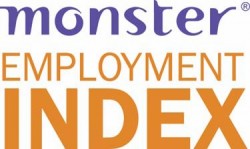Economists expect that tomorrow’s jobs report from the U.S. Bureau of Labor Statistics will show 175,000 jobs were lost in September, the smallest since July 2008.
A Bloomberg survey also says economists expect the unemployment rate to rise to 9.8 percent, the highest since 1983. An ADP report released this morning foreshadows the lower, yet still continuing job loss. The ADP ![]() National Employment Report says the U.S. lost 254,000 private, nonfarm jobs in September, a drop of 23,000 from the revised August jobs report. It’s the lowest drop that ADP has recorded since August 2008.
National Employment Report says the U.S. lost 254,000 private, nonfarm jobs in September, a drop of 23,000 from the revised August jobs report. It’s the lowest drop that ADP has recorded since August 2008.
Government economic reports released today showed the tentativeness of the U.S. recovery. A Commerce Department report said consumer spending in August was up 1.3 points, the biggest rise in eight years, and the fourth increase in a row. But fueled as it was by the Cash for Clunkers program, economists warn not to expect anything similar when the September results are reported at the end of this month.
 Meanwhile, the Monster Employment Index, also released this morning, was down two points from September, while yet another report, this one from the Labor Department today, said 551,000 first-time claims for unemployment were filed last week, 17,000 more than the previous week and 20,000 more than the consensus of the 41 economists polled by Bloomberg.
Meanwhile, the Monster Employment Index, also released this morning, was down two points from September, while yet another report, this one from the Labor Department today, said 551,000 first-time claims for unemployment were filed last week, 17,000 more than the previous week and 20,000 more than the consensus of the 41 economists polled by Bloomberg.
Then there is the report from Challenger, Gray & Christmas which says fewer layoffs were announced in September than in any month since March 2008. The 66,404 layoffs tallied in the report are 10,000 fewer than in August and 30 percent lower than in September last year.
Today’s reports prompted the New York Times to start its story this way:
“A fusillade of economic reports released Thursday showed the economy’s rebound off the bottom seems to be leveling off, and that any recovery may come in fits and starts over the rest of the year.”
That seems to precisely describe what most of us have been sensing instinctively: Things may not be getting much worse, but they don’t seem to be getting better either.
In separate conversations with two attendees of this week’s HR Tech show in Chicago, both mentioned that they had been told by vendors who sell overseas and recruiters who work globally that Europe and Asia are recovering more rapidly than the U.S.
There’s a much greater hesitancy to commit (to purchases or hires) here than in the rest of the world, one of the two offered.
That feeling seems evident in the Consumer Confidence Index released by The Conference Board Tuesday. The Index was off by 1.3 points, a small decline, to be sure, but part of a pattern that began in May.
After rising almost 30 points between February and May, the Index has leveled off, hovering right around 50.0. The Index is a measure of how consumer confidence compares to 1985, when the Index was set to 100. So while confidence isn’t dropping much, it isn’t improving either.
Reporting the numbers, Lynn Franco, director of The Conference Board Consumer Research Center, said, “While not as pessimistic as earlier this year, consumers remain quite apprehensive about the short-term outlook and their incomes. With the holiday season quickly approaching, this is not very encouraging news.”
An economist quoted in the Bloomberg story summed up conditions this way,
“The economy is on track for a jobless recovery, and unemployment will likely remain high well into next year,” said Sal Guatieri, a senior economist at BMO Capital Markets in Toronto. “We’re just not seeing a pickup in hiring. It means a long road to full recovery.”